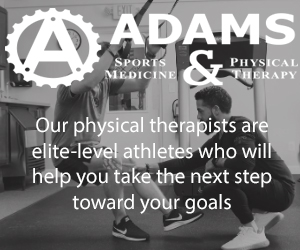
Watch out for the late summer ruts and grooves
Fri, Sep 5, 2008 - By Craig Storey, XC Ottowa
Another great article from our XC Ottowa friends!

Sometime last week the NCC supposedly fixed the parkway "tar snakes" - those nasty little cut-out lines of pavement that they fill with tar. You know the ones that are exactly the width of a roller ski wheel or a bike tire. Mostly harmless creatures in cold weather, watch out for them on warm days. The usual result of contact results in the skier or rider doing a little dance or being launched over the bars before sliding along the pavement. They pose a serious hazard to rollerskiers and cyclists and it's unfortunate that they seem to be breeding in the park. Nasty things those tar snakes!
While tar snakes are bad, the 'ruts and grooves' that I really want to warn you about here are the mental and physical ones that often occur in late summer training. I'm sure you have heard of the following expressions..
"In the Groove" - 1. functioning perfectly and with great ease (slang) 2. playing or performing in a highly accomplished manner (dated slang)
"In a Rut" - A track worn by a wheel or by habitual passage of anything; a groove in which anything runs. Also used figuratively. A settled and monotonous routine that is hard to escape;
We are currently four months from the last race and four more months until the next race. We are one quarter of the way through this year's training cycle and nearing the toughest time of the dryland season for cross-country skiers. By now you've likely logged hours and hours of running, biking, strength, rollerskiing and the occasional interval or hard session. But with cold weather right around the corner, training is just gearing up. If you are lucky you're "in the groove" and summer training has gone according to plan and you are ticking off training sessions effortlessly while feeling steady progress. On the flip side, maybe endless hot summer (or rainy) days have you feeling that you are just going through the motions, tired, plateau in one or more areas of training and you're generally "stuck in the late summer training rut".
Either way, now is a good time to take a vacation!

I know a lot of skiers dread taking one day off per week, cycle even year. They fear falling behind, so I'm sure the idea of a full week (or two!) without structured workouts probably sounds ludicrous. If you fit in this category you probably need to take the time off just to learn the benefits of real recovery. Personally, I had a hard time with the idea when my summer training was "in the groove". But after many years of experiments, observations of other skiers and discussions with coaches the theory of a late summer break seems to be a sound one.
When you feel you're "in a rut", the benefits of a break are obvious - though maybe hard to accept. Last week Zoe wrote a good article about knowing when to take some time off. It's not an uncommon feeling among skiers in late summer. The heat, big training hours and the desire to make as much progress in all off-season training aspects (strength, endurance, speed) as possible before the next race often makes skiers stale by the end of the summer. If you listen to your body and pay close attention to the symptoms you can avoid serious problems of long-term overtraining.
But why stop when you're really "in the groove"? More is always better right? If every training sessions feels better than the last and you are making steady progress, what benefit can there be from taking a rest? Here's my justification:
- While you've probably been putting in big training volume, the fall is always the hardest time with big volume and lots of intensity. It's best to go into this period well rested physically and mentally.
- When you're really "in the groove" it is easy to justify doing just a little more since it's going so well. This usually ends badly. Stick to the plan and discuss with your coach before you do any extra hours. A break will often put thing in perspective.
- Taking a break won't undo all of your hard work and progress. Think of all those times you struggled with a skill for hours and couldn't do it, left it for a few days and then were able to do it easily. Bigger gains come from rest after big effort. Summer is a big training effort, reap the rewards.
- I can't count the number of times I've heard skiers proclaim in late summer "I'm in the best shape of my life right now". Most of those same skiers then struggled through the winter. You want to progress to that invincible feeling by race season, not achieve it a third of the way through.
- Look at how Greg Lemond used to start the Tour de France, slightly pudgy and looking under trained but he always had energy in reserve for the hardest period of the Tour - the end. I'm not suggesting you bulk up, although Lemond used cross-country skiing to do his bulking up! I'm suggesting you keep energy in reserve for the most important period of the training season. It won't matter if you did 400 or 420 hours this summer if you are tired in the fall.
Seriously, mid-August or early September is a good time for a week or two without structured training. A mental and physical break from the routine. Just make sure it's true recovery - don't supplement ski training with another form of training. I'm not advocating a marathon couch lounging session either. Maybe take an active vacation: a canoe trip, a hiking trip or a cycle tour. If you are a students this is a time of upheaval, and the added rest ensures you stay healthy as you get settled into things.
As I mentioned before I haven't arrived at this idea without struggle and a few late summer training mistakes. But hopefully you can benefit from those. While you're at it you might want to read "Common Training Mistakes. How to Avoid the Pitfalls of Fall" and these tips on "How to Stay Fresh" just to be safe.
